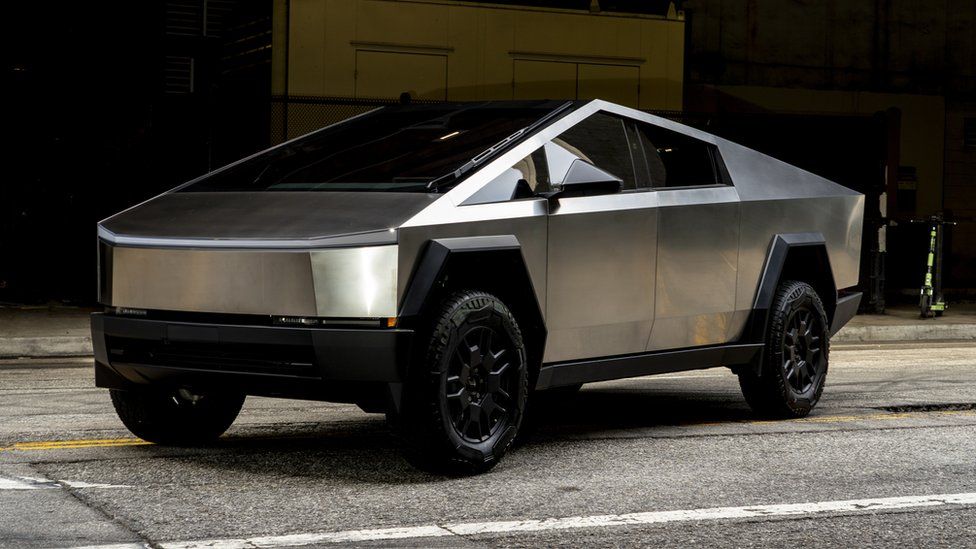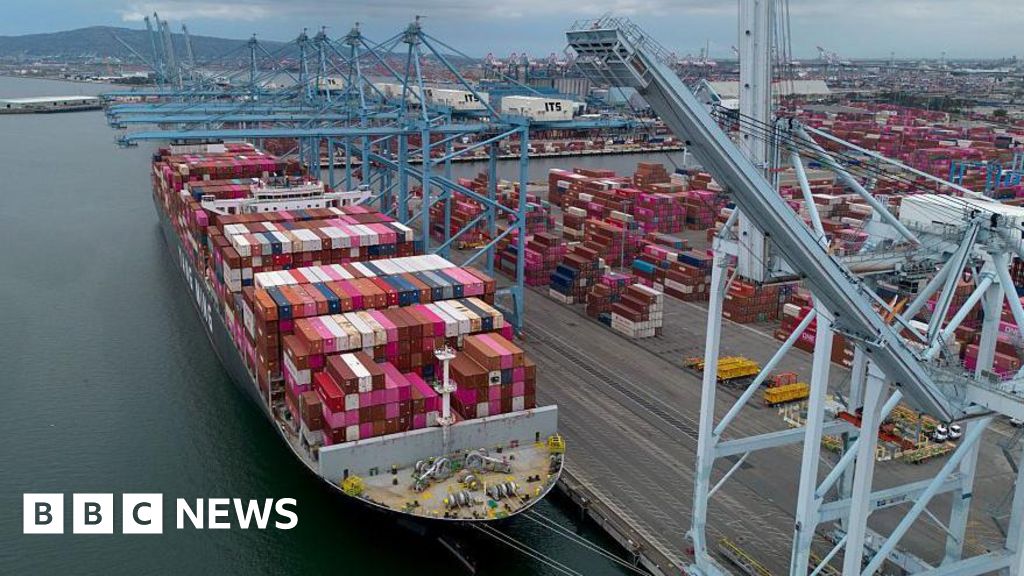ARTICLE AD BOX
 Image source, Getty Images
Image source, Getty Images
Last month Tesla had to recall thousands of its Cybertrucks over safety concerns around their accelerator pedals
By Theo Leggett
Business correspondent, BBC News
There was a time when it seemed Tesla could do no wrong.
In little more than a decade, it went from technology upstart to mass-market carmaker, invested billions in its clean energy business, and saw its value rocket.
But now the company is struggling with falling car sales and intense competition from Chinese brands, as well as problems with its much-hyped Cybertruck.
Lower sales have hit its revenues, and hurt its profits. Its share price has fallen by more than a quarter since the start of the year.
It has cut prices in major markets, and is in the process of laying off some 14,000 employees - 10% of its global workforce. Those affected include senior executives and the entire team responsible for its much-admired supercharger network.
So is all of this just a bump in the road, or are the wheels coming off the Tesla bandwagon?
"It's about breaking a spell," explained Elon Musk to a specially invited audience at Tesla's California factory back in June 2012.
"The world has been under the illusion that electric cars can't be as good as gasoline cars," he said.
Musk was speaking at the launch of the new Tesla Model S, a car he insisted would shatter that illusion. It was no empty promise.
Image source, Getty Images
Image caption,Tesla's 2012 release of the Model S transformed the electric car market
At the time electric cars had a long-standing reputation for being slow, uninspiring and impractical, with very limited range.
Although new models such as the Nissan Leaf were starting to develop a niche following, they had yet to make much of an impact on the wider market.
The Model S was powerful, had sportscar performance, and could travel up to 265 miles on a single charge. It wasn't cheap, starting at $57,000 (£47,000) in the US for the lowest performance version, but it certainly made a point.
Since then, Tesla has launched four more models, including the Model X SUV, the "affordable" Model 3 and Model Y, and the Cybertruck.
It now has huge, so-called gigafactories building cars in Shanghai and Berlin, in addition to its original facility in Fremont, California, and a number of other US sites. Last year, it delivered 1.8 million cars, suggesting it has established itself firmly as a mass-market manufacturer.
But according to Professor Peter Wells, director of Cardiff University's Centre for Automotive Industry Research, that is part of the problem. "When Tesla first emerged, it had an exciting new product, a charismatic CEO, and it came across as really pioneering," he explains.
Now though, the company "is no longer the entrepreneurial new entrant and upstart disrupter, but increasingly an industry incumbent with all the challenges this brings when faced with a growing array of competitors in the same market space".
Other companies, like China's Nio, are offering more exciting products, says Prof Wells, while fellow Chinese firm BYD offers good performance at lower prices. "Basically, the world has caught up with Tesla," he says.
Image source, Getty Images
Image caption,Chinese electric car brand Nio is making cars with the wow factor
There is no doubt that there is a lot more competition than there used to be. Following the diesel emissions scandal that engulfed it in 2015, Volkswagen began ploughing money into electric vehicles.
And as governments around the world began looking seriously at eventual bans on the sale of new petrol and diesel models, other established manufacturers soon followed. Customers looking for an electric car with decent range and performance now have plenty of options to choose from.
In China, meanwhile, policymakers have for years seen the development of electric vehicles (EVs) as an opportunity to take a significant share of the global market, and promoted their development. The result has been the rapid growth of brands such as BYD - which overtook Tesla to become the world's biggest manufacturer of electric cars at the end of last year.
At the same time, as the EV market has become more established, in many parts of the world subsidies to help consumers buy them have been reined in. That may be one reason why the rampant growth in EV sales in recent years has eased off - and why the manufacturers themselves are having to drop their prices.
According to independent auto analyst Matthias Schmidt, this has certainly had an impact on Tesla.
"Finance ministers who were previously happy to offer attractive incentives for the purchase of a battery electric vehicle in a market environment that appeared bare-shelved, with essentially a Tesla or a Tesla on offer, are now slamming their purses shut," he says.
One market in which this appears to have had a profound effect is Germany. A subsidy scheme offering thousands of euros off the cost of a new electric vehicle was abruptly ended in December.
EV sales there fell sharply in the first three months of this year, with Tesla suffering a 36% drop compared to the same period in 2023.
The question now is whether Tesla can regain lost momentum. Its maverick chief executive, Elon Musk appears to be pinning his hopes on the company becoming a leader in vehicle autonomy - a provider of driverless robot taxis.
Last month, on his social media site X, he wrote: "Not quite betting the company, but going balls to the wall for autonomy is a blindingly obvious move. Everything else is like variations on a horse carriage".
Image source, Getty Images
Image caption,Elon Musk is betting on Tesla being the leader in driverless cars
Yet Musk has been talking up the prospect of full autonomy a very long time. In 2019, for example, he promised that within a year there would be a million Teslas on the road capable of acting as robotaxis.
The reality, so far, is rather different. Tesla's "Full Self Driving" package remains rather less than its title suggests - it is still a "hands on" system that requires the driver to be paying attention at all times.
The quest for full autonomy does fit with Tesla's identity as a technology business, rather than a traditional carmaker. But Musk's critics believe it is simply a smokescreen to distract from other problems.
Meanwhile, Tesla has been cutting prices to boost sales, and cutting costs and reducing headcount to improve its margins. Much as any other car company might do.

 1 year ago
65
1 year ago
65








 English (US) ·
English (US) ·